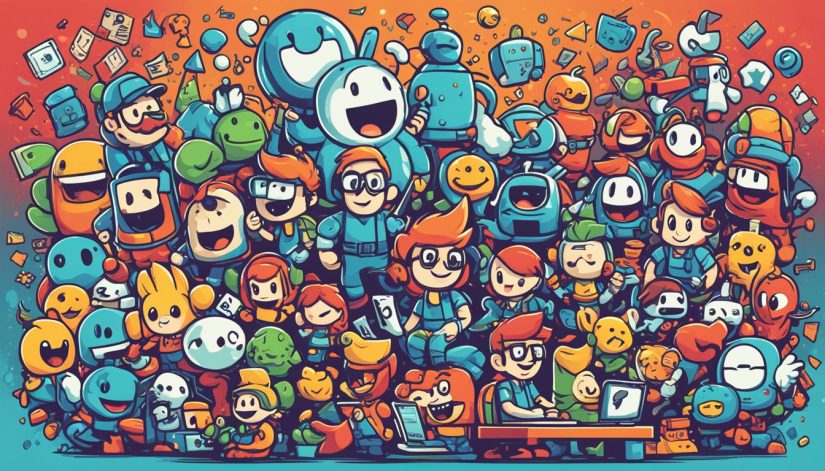In the dynamic and ever-evolving gaming world, indie game developers have carved out their own niche, creating unique and captivating gaming experiences. But how lucrative is this creative pursuit? How much can indie game developers actually make?
Join us as we dive into the financial aspect of the world of indie game development, exploring the earnings of these talented creators. From the mega successes to the hidden gems, we’ll provide insights into the earning potential of indie game developers in this article.
Whether you’re an aspiring indie game developer or simply curious about the financial landscape of the gaming industry, this exploration into the earnings of indie game developers is sure to be an enlightening journey.
Let’s begin our exploration of the gaming world, shifting our focus from gameplay to the business side of things. Get ready to unravel the financial mysteries of indie game development!
Factors Influencing Indie Game Developer Earnings
Welcome to the second section of our exploration into the financial world of indie game development. In this section, we will dive deeper into the various factors that can significantly influence the earnings of indie game developers. From game popularity and platform choices to marketing efforts and revenue models, understanding these factors is crucial for achieving financial success in the competitive gaming industry.
One of the primary factors that can greatly impact indie game developer earnings is game popularity. Creating a unique, engaging, and well-designed game is just the first step. The market is saturated with countless indie games, and standing out from the crowd is essential. Developers who can successfully capture the attention of gamers and create a dedicated fan base have a higher chance of generating substantial earnings. After all, the more people who play and talk about your game, the more likely it is to generate revenue.
The choice of platform is another critical factor that can significantly influence indie game developer earnings. Different platforms have varying degrees of popularity and reach, targeting diverse audiences. Developing for popular platforms such as PC, consoles, or mobile devices can increase the visibility and accessibility of your game, which in turn can lead to higher earnings. However, it’s important to carefully analyze your target audience and consider platform constraints and requirements before making a decision.
Effective marketing efforts also play a crucial role in determining the financial success of indie game developers. Enthusiastically promoting your game through various channels, including social media, gaming forums, and influencer collaborations, can significantly increase its exposure and attract a larger player base. Moreover, investing in strategic advertising campaigns and attending industry events can help boost awareness and generate buzz around your game, ultimately impacting your earnings.
Furthermore, the chosen revenue model for your indie game can shape its financial success. Different revenue models, such as one-time purchases, in-app purchases, subscriptions, and advertising, each have their pros and cons. It’s important to carefully evaluate your target audience, the type of game you’ve developed, and industry trends to select the revenue model that best aligns with your game and maximizes earnings.
Remember, as indie game developers, we not only have to create amazing games but also need to be savvy in navigating the intricate world of monetization and marketing. It’s a delicate balance that can greatly influence our earnings and overall success in the gaming industry.
Now that we’ve explored the various factors influencing indie game developer earnings, let’s take a moment to visualize their impact in a comprehensive table below:
| Factors Influencing Earnings | Description |
|---|---|
| Game Popularity | The level of interest and engagement your game generates among players. Highly popular games often have a larger player base and higher earnings. |
| Platform Choices | The selection of the platform on which your game will be released. Different platforms have varied popularity and reach. |
| Marketing Efforts | The promotional and advertising activities you undertake to increase your game’s visibility and attract players. |
| Revenue Models | The chosen monetization approach, such as one-time purchases, in-app purchases, subscriptions, or advertising. |
By strategizing around these factors, indie game developers can improve their chances of achieving higher earnings. However, it’s important to note that success in the gaming industry is not solely determined by these factors. The uniqueness, quality, and innovation of your game also play a vital role in capturing the attention and loyalty of players.

Now that we have examined the factors influencing indie game developer earnings, we can move on to the next section and explore the common revenue models employed by indie game developers. Join us as we delve into the intricacies of monetization strategies in the gaming industry!
Common Revenue Models of Indie Game Developers
When it comes to monetizing their creative passion, indie game developers have a multitude of revenue models at their disposal. Choosing the right one can make all the difference in their financial success. In this section, we will explore the common revenue models utilized by indie game developers and discuss their pros and cons.
1. One-Time Purchases
One-time purchases have long been a popular revenue model in the gaming world. With this model, players pay a fixed price upfront to access the game, gaining full ownership and unlimited playtime. While it offers instant revenue and a straightforward user experience, this model can limit ongoing revenue streams.
2. In-App Purchases
In-app purchases have revolutionized the gaming industry, enabling developers to offer additional content, power-ups, or in-game currency for real money. This model allows games to be initially downloaded for free, attracting a wider player base. The success of this model lies in creating compelling in-app purchases that enhance the player’s experience without compromising game balance or alienating players who choose not to spend.
3. Subscriptions
Subscriptions have gained popularity among indie game developers, offering a recurring revenue stream. With this model, players pay a periodic fee to access the game and any associated benefits. Subscriptions allow developers to continuously provide content updates and engage with their community. However, it’s crucial to strike a balance between offering valuable perks and avoiding pay-to-win scenarios.
4. Advertising
Advertising presents another revenue opportunity for indie game developers. Through integrated advertisements or rewarded videos, developers can generate revenue while keeping games free for players. Strategic ad placement and relevant content are essential to maintain an enjoyable user experience without overshadowing gameplay.
Choosing the right revenue model involves understanding your target audience, game genre, and long-term objectives. It’s essential to iterate and adapt your revenue model based on player feedback and market trends.
Now that we have explored these common revenue models, it’s important to consider their potential impact on the overall financial success of indie game developers. The choice of revenue model should align with the game’s nature, player expectations, and the developer’s long-term goals. By carefully selecting and implementing the right revenue model, indie game developers can unlock the full potential of their creations and pave the way for sustainable financial success.

Success Stories of Indie Game Developers
Throughout the gaming world, there are countless success stories that inspire and motivate indie game developers. These talented individuals have not only created engaging and innovative games but have also achieved remarkable financial success in the process. Their stories serve as a testament to the opportunities and rewards that await those with passion, dedication, and a creative vision.
One such success story is that of Toby Fox, the mastermind behind the critically acclaimed indie game “Undertale.” With its unique blend of charming characters, captivating storytelling, and thought-provoking gameplay, Undertale became an instant hit. The game’s success allowed Fox to not only earn significant revenue but also gain recognition and praise from both players and industry professionals.
Another inspiring success story is the journey of the indie game development studio, Supergiant Games. Known for their hit titles such as “Bastion,” “Transistor,” and “Hades,” Supergiant Games has proven time and again that independent game development can lead to extraordinary success. Their games have received critical acclaim, won numerous awards, and generated substantial revenue, making them a true indie game success story.
These success stories, along with many others, demonstrate that financial success is attainable for indie game developers. By creating unique and engaging experiences, leveraging effective marketing strategies, and connecting with their audience, indie game developers can carve their path to greatness and realize their dreams in the gaming industry.

